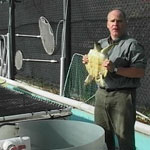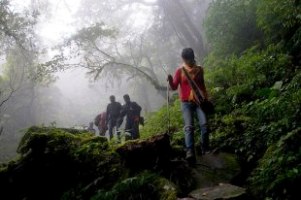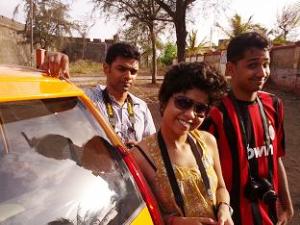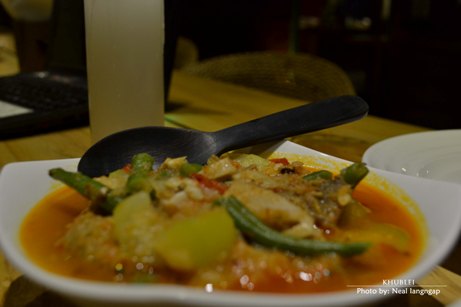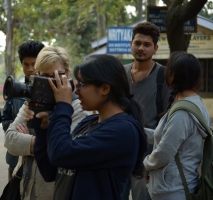Nature has been merciless to thousands of lives which were lost during the devastating floods of 2013 in Uttarakhand. But even after a year of the tragedy, hardships didn’t seem to end for those who have been living under its shadow.
June 16, 2013, witnessed one of the most horrifying disasters unfolding and shaking not only the state of Uttarakhand but the nation with its tremors. Government’s count of deaths is still doubtful. Exact damage is impossible to assess. Reasons for loss debated time and again. But the fact remains is what occurred was extremely unfortunate and the loss is irreversible.
Hundreds of families in the hills have nothing left but a flickering hope for their future as they lost their fathers, sons, mothers, bread-earners and a lot more. A lot was talked about the tragedy, its aftermath; threats from hydro power projects and the setback for tourism. But less was mentioned about the people in the hills who actually have to stay there, survive and breathe under the presage of the next disaster leaving them deserted and homeless again.
While travelling to some villages of Rudraprayag (Uttarakhand) where the river Mandakini played havoc, I tried to gather some voices which remain unheard even after a year of the catastrophe.
Raji Devi, 38, Budoli village
Raji was gasping for breath when I first saw her. She had returned from a long day of toil travelling 10 back breaking miles. She practices it everyday to feed her children, old mother-in-law and herself.
Grabbing a glass of water, she rested her back against the wall. Raji had a lot to say.
“My husband Sunder Singh, used to work as a cook in one of the restaurants in Kedarnath. He died in the floods last year leaving behind four children, his ailing mother and me. Now as a labourer I wander from one place to another in search of work. I carry sacks of sand, cement and gravel…sometimes lifting them from the carriers to high construction sites.
My body does not favor it but I have to push myself hard enough. I have to struggle for my family.”
Heartrending is the sight of Raji’s old mother-in-law who struggles with slabs of rock mounted in the small courtyard. With a small hammer she cuts them into chips which are later used for construction of houses. “We barely get 20 bucks for a sack,” says Raji.
“My mother-in-law remains ill most of the time but she makes sure that she atleast helps me out by doing whatever she can. I have two daughters and two sons. All of them are very young and cannot help me in work. Now everything rests on me as there is no one to shoulder us. With my husband everything is gone.”
As I was leaving the old lady took my hand. She brushed hers against mine and burst into tears. I felt her palms. Rough, rugged.. caked in sand .. they were bleeding.
Jaspal Lal, 43, Bhiri village
“It was in the year 2010 that I constructed a small house with all the money I had saved from work. I saw it shattering. It lingers,” says Jaspal Lal of Bhiri village.
Jaspal was among those unfortunate ones who lost their house and fortune in the disastrous floods. He now lives with his wife and three-year-old son in a tent which hardly protects them from cold or rain.
When I last met Jaspal’s family his wife Laxmi was three months pregnant. She was sitting on the earthen floor under the shelter of the thin blue plastic sheet with a small solar lamp dangling over her head. “This is the only aid we got from the government,” said Jaspal. “Last time when they visited they asked thousands of questions and then handed over this lamp promising for more help which never reached.”
After four months, I visited Jaspal again only to find his family facing the worst. Laxmi was rubbing a bunch of utensils under the bare sky and her son rolling under the only blanket they have received as a small token of help from their neighbors. The thin blue plastic sheets had apertures for light, water and wind.
“Sometimes the rain keeps us awake for the night and then we have to spend the rest of the days on the damp floor,” complains Laxmi. “It is really tough for me and my son.”
Jaspal strives on minimal wages as a farm labourer. Sometimes days even pass without work. In those times the family manages with a handful of chapatis and salt.
“My wife will deliver in a month or so. How will I manage the hospital expenses? I have no money for feeding her. How will I feed the new baby?” says Jaspal.
Rameshi Devi, 47, Damaar village
Rameshi’s five years old daughter Surbhi plays with dolls, careless of the adversity her family is surviving through.
“We used to own mules which were the only source of income during the yatra. Last year, I don't know why but my husband insisted on taking my 16-year-old son along with him to drive the animals. He said that that the boy should also learn to extend his help soon,” narrates Rameshi. The nightmare of Kedarnath had just began for Rameshi. Her mud house crumbled under the gushing water as flood struck the village. She has sheltered herself, her 13 year-old-son and her daughter Surbhi at one of the government school.
“Next day I was trying hard to gather my senses when the news broke. The valley if Kedarnath had been hit by a flood. People were dead. Some went missing and there was no way to connect to my husband and son,” says Rameshi.
After 15 days of anxiety, patience and hope, Rameshi learnt that her husband and son were not returning.
Out of the compensation money Rameshi has managed to purchase a small piece of land. An ngo has helped her build a small house but now she has no source of income left.
“I still spend most of my time crying and remembering my son. I wish he was alive. He was here with us. My husband was here for us,” says Rameshi. She shudders at the idea of sending her younger son back to the temple valley for work.
Rajni, 21, Partio village
“If only there was God and he ever heard us, I would ask him to turn everything back and erase what had happened last year,” 21-year-old Rajni looked into my eyes and said.
She had not spoken when I met her the last time. She was only crying while carrying her six-month-old infant in her arms with her four-year-old son clinging to her.
Rajni was pregnant when her husband Bhagat Singh and her elder brother Sandeep left for Kedarnath. They used to drive rented jeeps while working together.” When I last talked to Bhagat over the phone he was extremely happy. He said that the yatra season has been good for them as there was a rush of tourists. He also promised to get me gifts this time,” says Rajni.
After the floods Bhagat and Sandeep were never heard.
“It was a wrath of Gods. We lost our only son and son-in-law together,” laments Rajni’s father Shivraj. Rajni’s mother Bachan Devi hardly speaks a word after the mental breakdown confining her to the house mostly.
Rajni now stays with her father as her in-laws have turned their back on her and her child saying that she is a curse for the family.
“They never came to see me and their grand daughter after she was born. They just called and said that I should stay back with my parents,” says Rajni.
She fears that if she returns her in laws will pounce on the compensation money washing their hands of her and her child.
And the tale is unending. There are hundreds of families who have been striving hard. Widowhood has turned to be the biggest curse for women as they are supporting their while battling the social reprimand.
Houses lie dilapidated with their occupants forced to live in them. Children have no schools to study. Farmers have lost their lands. Livelihoods have been washed away. Connectivity to several villages still disturbed.
The misery of these hills is hard to put in words. It is painful to look into their eyes which always search for hope in yours. But time heals all the wounds. People have gathered themselves and are moving ahead. But the pain will always linger.







